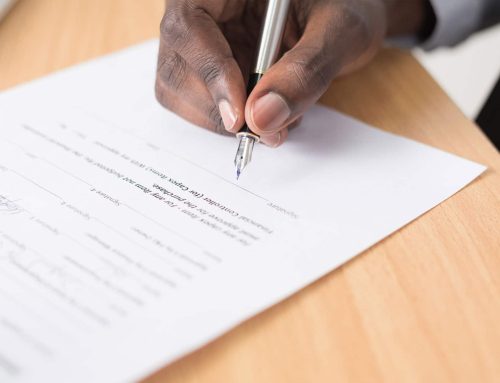The Four Types of Will Gifts
When a testator wants their last will and testament to outline gifts they’ll be leaving to their beneficiaries (known as bequests), there are four different will gifts a testator can consider. Knowing the difference between the four types of will gifts helps a testator decide which gift type makes the most sense for their given estate’s needs. There are even scenarios where certain gifts are given more priority based on their will gift type.
Knowing the differences in will gift types also allows the personal representative (executor) of the estate to better fulfill the testator’s wishes and get the assigned gifts into the proper recipient’s hands. We’ll break down the four types of will gifts so you or a testator you love can be confident in both the drafting and execution of their last will and testament.
Specific Gifts
A specific gift’s intention is to appoint a specific asset to a named beneficiary. For example, a father would like his oldest son to inherit his 1969 Ford Mustang after his passing, or a grandfather would like his sizable coin collection to go to his only granddaughter. As long as the specific asset is legally owned by the testator, a specific gift can be anything the testator desires. This can include a car, a vacation home, an art collection, varying digital assets, or even a beloved jewelry collection.

The testator can stay broad in their assignments or they can get as detailed as they would like during the process of outlining specific gifts in their will. So long as the last will and testament is sufficiently detailed regarding what exactly is being gifted, and to whom, it’s really up to the testator how much is gifted. For example, the 1969 Ford Mustang may have been kept in a garage for the last 20 years collecting dust. Some more money could be set aside for the specific purpose of a car detailing in Denver. This could easily be accomplished.
With designating digital assets, such as cryptocurrency, the will should also provide directions to the beneficiary how they can access their given online asset(s.) These little details included when drafting a will can save the personal representative and the beneficiaries a lot of time and money.
General Gifts
A general gift usually involves the designation of monetary gifts. Although the specific value is outlined in the will, and the beneficiary of that amount is named, the source of that value is not specified.
For example, a father may state in his last will and testament that he would like each of his four children to receive $10,000, but where that money comes from or which account that $40,000 sum is pulled from is not declared. This makes it a general gift because the will does not say exactly where that money will be extracted from, but that it is to be given after the testator’s passing.
Demonstrative Gifts
A demonstrative gift is similar to a general gift in that they are typically used for gifting money. However, unlike a general gift, a demonstrative gift states the exact source of the gifted funds.
Take the example just used above; a father of four would like each child to receive $10,000 after his passing. Additionally, he states he would like that money to be extracted from his primary checking account. A demonstrative gift will specify the source of the gifted money so the executor and probate court know from where that monetary value will be pulled from.
Residuary Gifts
A residuary gift is the fourth type of will gift option that a testator may decide to implement. Using a residuary gift type, a testator can declare that after their entire estate’s debts are paid in full, the estate’s administrative costs have been covered, and all the specific, general, and demonstrative gifts have been given to the assigned beneficiaries, what remains is to be left to a specific beneficiary or beneficiaries.
Residuary gifts may include “left over” property that was not accounted for in the last will and testament. A testator may even decide to use a residuary gift option to leave these remaining assets to an educational institution or favored charity.
Avoid Gift Failures
When there’s an error detected or lack of clarity in a last will and testament that prevents the intended beneficiary from receiving their assigned gift, this is known as a gift failure. The most common gift failure occurrences come from a testator’s will not being specific enough about what is being gifted, and to whom.
For example, the testator’s will says that he would like his “sister” to receive $50,000 dollars. However, the testator has two sisters, and the sister he wished to gift was not specified. The more specific a testator can be when creating their last will and testament, the easier it will be for the personal representative and probate court to interpret and act upon.
Another scenario that may lead to a gift failure is if a named beneficiary dies before the testator does. In this event, the assigned gift(s) will become a part of the residuary estate, or the gift will fall under intestacy rules if the deceased beneficiary was a residuary beneficiary. In either case, this type of gift failure can be avoided if a testator names an alternative beneficiary or if a testator reallocates the gift by creating a codicil. An estate attorney can help a testator navigate this territory so intestacy can be avoided, or a codicil can be drafted if the testator’s specific scenario calls for one.
Work With an Estate Planning Attorney Today
In creating a last will and testament that outlines all gifted assets, and to whom they will be gifted, it’s recommended that a testator work with an experienced estate planning attorney. With their guidance, they can help determine which of the four will gift designations makes the most sense for an estate’s specific assets and how they should be outlined in the will.
An estate planning attorney can also help create a last will and testament that has sufficient detail that will prevent gifts from being subjected to gift failure status(es) making the probate process that much easier for the personal representative and beneficiaries to manage. Contact Brestel Bucar Ltd. and schedule a meeting with a member of our legal team today. 303-731-4402




